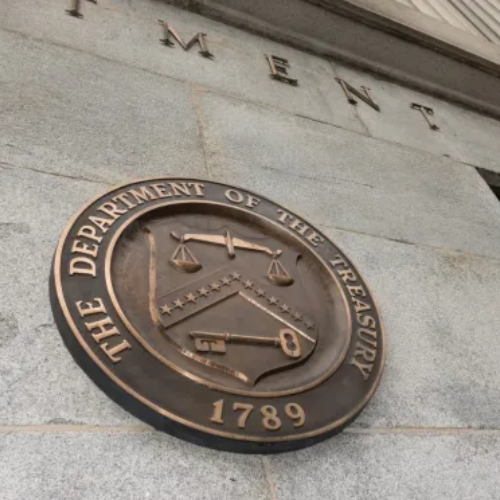The United States Treasury Department has announced tough new sanctions against two high-ranking members of a violent Mexican drug cartel known as Cartel del Noreste (CDN). This group, once part of the infamous Los Zetas, operates mainly in the northern region of Mexico near the U.S. border. It has been officially designated as a terrorist organization by the U.S. government.
The sanctions were issued by the Office of Foreign Assets Control (OFAC), which is part of the Treasury Department. These sanctions freeze any U.S.-based assets the individuals may have and ban American citizens and companies from doing any kind of business with them. The goal is to cut off the cartel’s access to money, weapons, and support networks in the United States.
CDN is known for its extreme violence, including kidnappings, killings, and armed attacks. It poses a serious threat to both Mexican and American communities, especially in towns close to the southern U.S. border.
Who Was Sanctioned
The two sanctioned individuals are Miguel Angel de Anda Ledezma and Ricardo Gonzalez Sauceda.
Miguel Angel de Anda Ledezma is reported to live in Nuevo Laredo, a city located right on the border with Texas. According to U.S. officials, he plays a key role in CDN by handling the purchase of guns and ammunition for the group. He is also in charge of making payments to straw purchasers—people in the U.S. who illegally buy weapons on behalf of the cartel. These purchases allow CDN to arm its members for violent activities.
U.S. Demands Mexican Banks Block Billions in Cartel Cash Hidden via Crypto and Trade
Ricardo Gonzalez Sauceda, the second person named in the sanctions, was once the second-in-command of the cartel. He was arrested by Mexican authorities in February. Even though he is in custody, the U.S. still imposed sanctions on him because of his major role in CDN’s violent operations. He is accused of leading a heavily armed unit within the cartel that carried out attacks against the Mexican military and police using trafficked firearms.
Both men are said to have played a major part in helping CDN maintain its power through fear, violence, and illegal weapons. Their work has contributed to the cartel’s violent control of areas in Mexico and threats to communities across the U.S. border.
What the U.S. Government Said
U.S. officials made strong statements in support of the sanctions. Treasury Secretary Scott Bessent said the action is part of a broader effort to eliminate cartels and protect Americans. He called the cartel leaders “terrorists” responsible for dangerous and brutal crimes.
Bessent said that CDN has created a violent campaign of intimidation through kidnappings, attacks, and fear tactics that stretch across the southern U.S. border. By targeting the cartel’s finances and supply chain, the government aims to make it harder for these criminal networks to continue operating.
Top DEA Pick Says Cartels and Mexico’s Government Are Collaborating — Lawmakers Demand Proof
The Treasury Department explained that cutting off CDN from U.S. money and goods is an important tool in fighting their influence. Officials believe that without easy access to firearms and financial support, the group will lose power over time.
According to State Department spokesperson Tammy Bruce, CDN uses violence to keep control over border towns and to scare both local Mexican residents and U.S. citizens. She said the group’s actions continue to threaten peace and safety in northeastern Mexico and beyond.
Broader Fight Against Transnational Terrorist Groups
Earlier this year, the U.S. government added CDN to a list of eight foreign terrorist organizations. This list also includes other dangerous groups such as MS-13 and Tren de Aragua (TdA), which are involved in similar violent crimes across borders.
The sanctions are part of a larger strategy to disrupt how these groups operate—without needing to send troops or law enforcement across international lines. Blocking their access to weapons, cash, and allies in the U.S. is a way to weaken them from the outside.
These actions show that the U.S. is treating drug cartels not just as criminal gangs, but as global threats with the power to destabilize entire regions.


